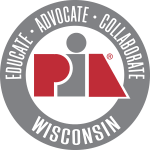Help Your Clients Prepare for a Disaster
National Preparedness Month is observed each September to raise awareness about the importance of preparing for disasters and emergencies that could happen at any time. As an insurance professional, it’s an opportune time to connect with clients to evaluate possible disaster scenarios for their property and business and ensure that they are prepared.
There are several things you can do to help your clients prepare for a disaster no matter the geographic location or type of catastrophe. Remember, a natural disaster can be smaller than a hurricane or earthquake. A fire or burst pipe can be just as damaging.
- An emergency response plan is the first step to any solid preparedness program for both small and large businesses alike. Know evacuation routes. Form a communication strategy to make sure everyone is informed. Create a survival kit and “go bag” just in case. Consider remote work options and what aspects of the business will or will not continue. Ready.gov provides guidelines and preparedness resources for both home and business.
- Coverage. As their trusted partner, you need to ensure your clients have the proper coverage for their property and business possessions. Go over flood insurance options, earthquake coverage, business interruption insurance and property damage details to make sure they’re properly addressed.
- Data and technology. Because information is extremely valuable these days, help to make sure each client’s data is backed-up and stored far enough offsite or in the cloud so retrieval is easy and accessible. For paper documents, be sure these are stored in a fireproof safe. This includes insurance policies, birth certificates, passports, and financial documents.
- Inventory belongings. This will help your clients should they need to file a claim for property damaged in a disaster. Encourage your clients to take photos or videos of belongings and keep a list of serial numbers. Consider suggesting the Home Inventory App as available from the National Association of Insurance Commissioners.
- Stay informed. Know what types of disasters are most likely to happen in your area and encourage your client to know how to prepare for them. You can find helpful information from your local government or emergency management agency, and at the US Census Bureau.
With these tools, your clients won’t have to panic the day before a storm hits. Give them the tools they need to properly prepare and plan for a disaster, so they have peace of mind when a crisis occurs. Let them know you’re committed to helping them keep things running smoothly.

